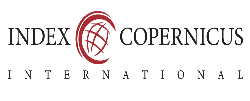Pelatihan Akuntansi, Manajemen Keuangan, dan Perpajakan Bagi Pengelola Sekolah Di SMK Raden Umar Said Gebog Kudus
DOI:
https://doi.org/10.51903/community.v1i3.102Keywords:
Accounting, Finance, TaxAbstract
The accounting, financial management, and taxation training activities for school managers are motivated by the responsibility of vocational high schools (SMK) to be able to make good accountability reports for aid funds provided by the government and other parties. It is hoped that this report can be prepared in accordance with applicable accounting principles. In addition, professional fund management allows schools to grow optimally and in the end is expected to be able to support a quality teaching and learning process. School administrators need to manage the funds they receive professionally. Schools as institutions that use funds in carrying out activities need to understand generally accepted tax rules and their application. Funds disbursed to schools will be monitored for their use and their accountability reports checked by authorized agencies such as the Supreme Audit Agency (BPK). Vocational High Schools that rarely have accounting staff will of course delegate this responsibility to school principals and treasurers who may also not have sufficient educational background and knowledge of accounting, financial statement preparation, school financial management, and taxation. This training is expected to help provide knowledge, understanding, and skills so that schools can organize the preparation of financial reports, manage finances transparently and apply procedures for collecting, depositing, and reporting school taxes.












.png)
